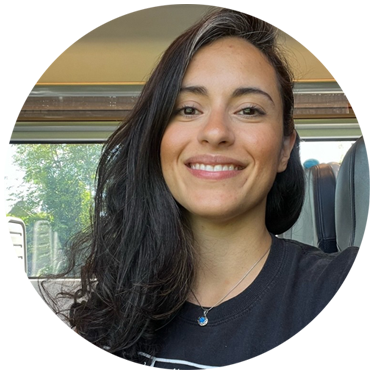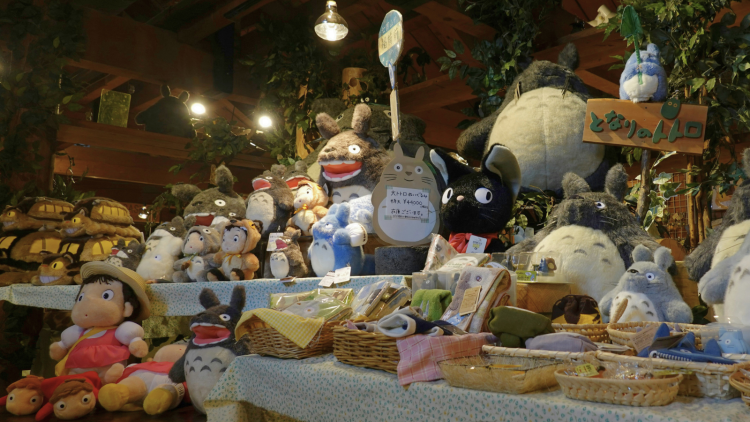"I’m driven by a desire to fix problems”: SOAS alum Karolin Abbas on finding purpose across fields



Since graduating with a first-class BA in Linguistics from SOAS, Karolin Abbas has applied her skills across a wide range of sectors and roles, always driven by the desire to make things better.
Karolin has worked as a Research Analyst and Business Analyst within the Lloyds of London market, Grambank and Universal Music, and as a translator for Zeinab Badawi’s documentary series ‘The History of Africa’. Today, Karolin works as a consultant within the Voluntary Carbon Market. Alongside this, she is continuing her research on the environmental impact of munitions on soil and what that means for remediation.
We caught up with Karolin to learn how far a linguistics degree can take you and the unexpected ways linguistic skills are applied across industries.
Moving beyond the simple career narrative
“When I chose linguistics, there was a simple career narrative: go on to teach or become a writer. But my degree actually took me to so many places. At SOAS, I used my module options to study economics and politics as well as extra language courses, including Arabic linguistics with Chris Lucas and a year-long module in Modern Standard Arabic with Mona Hammad, which really elevated my Arabic skills.
When I chose linguistics, there was a simple career narrative: go on to teach or become a writer. But my degree actually took me to so many places.
This led to a brilliant opportunity to work on a documentary series by Zeinab Badawi, translating from Arabic to English, after a SOAS staff member, Lutz Marten, got in touch. I was in my third year at the time, juggling a lot, including my research role at Grambank - a joint project with SOAS, the Max Planck Institute, Harvard, and Yale (to name a few), primarily analysing language grammars. But I couldn’t turn it down, and it became a real highlight of my time at SOAS.
After graduating, I moved on to become a Business Analyst within the Lloyd’s of London market, bridging client requirements and technical specifications. The role linked back to my interest in semantics, focusing on translating customer ideas into concrete technical requirements that would be easy for software developers to digest. I later joined Universal Music as a Business Analyst before pursuing a Master’s in Environmental Technology at Imperial College London, where I specialised in environmental assessment and management."
How my linguistics degree helps me connect the dots
“Linguistics is fundamental because language underpins everything humans do. Whether you’re analysing how we communicate or applying your knowledge in different fields, a background in linguistics gives you a powerful tool for understanding and interacting with the world.
One of my favourite areas of linguistics is semantics (shout out to Yan Jiang). I’m really interested in how words convey meaning—the intention behind words versus how they’re received. Semantics often doesn’t get as much love, but I find it fascinating.
A background in linguistics gives you a powerful tool for understanding and interacting with the world.
My current research on carbon markets includes a sociolinguistic angle, which means looking at things like the attitudes speakers of one language have toward speakers of another and how language is embedded into societal structures - an exciting blend of linguistics and real-world issues.
To linguistics students, I would say, don’t be afraid to branch out into new areas. For me, it's been useful to work in different sectors because it allows you to draw parallels across sectors and roles and see how, in some ways, most roles are the same.”
What motivates me? A love of learning and fixing problems
“What gets me up in the morning is fixing problems. Because I like fixing things, I’m good at spotting gaps and issues. My dad is a car mechanic, and my mum is a hairdresser—both ‘fixers’ in their own way. Sometimes, I’m drawn to random problems I spot on the street, and sometimes, the problems I focus on are bigger, like the environmental impact of munitions.
That’s what drew me to do an MSc in Environmental Technology at Imperial. I wanted to have an impact. My thesis was about the environmental impact of munitions on soil and the scope to create a global system to remediate land by placing the responsibility to cover costs on manufacturers.
What gets me up in the morning is fixing problems. Because I like fixing things, I’m good at spotting gaps and issues.
An example I often use is Ukraine, often called “the breadbasket of the world." As a result of the war, large areas of agricultural land have experienced bombing and, as a result, significant soil contamination across the landscape. Once there is peace, the focus will likely be on getting crops growing again, rather than cleaning up the soil, which is likely to yield contaminated crops. Historically, Africa and the Middle East have relied heavily on Ukraine’s grain exports. Contaminated crops, therefore, run the risk of exacerbating existing global issues linked to food security, malnutrition, and disease. So, how do you address that? That’s what my thesis is about.”
My route to SOAS
“Before SOAS, I spent two years studying computer science at Queen Mary University of London, but ended up wanting to change path. My housemate at the time, who was studying Economics and Politics at SOAS, suggested SOAS might be a perfect fit. He knew I was a critical thinker and thought I’d thrive at SOAS, which fosters an environment where students are allowed to engage deeply with critical issues. I applied through Clearing and switched to a BA in Linguistics. That decision turned out to be one of the best I’ve made.
SOAS stands out in its approach to learning. It’s a heterodox university, which I believe is a big advantage. Whether you’re studying economics or linguistics here, you don’t just get the mainstream content- you get to dive into alternative perspectives not often covered elsewhere. This gives students a real edge in the world, whether they work in NGOs, government, or the private sector. I often found that friends from other universities hadn’t even heard of some of the topics SOAS students cover. That’s what makes this place truly unique.”
SOAS is the right place for you if you value different perspectives
“If you're someone who values understanding different perspectives, SOAS is the right place for you. It's all about recognising that people see things differently and learning how to make sense of that. You get the tools to figure out why someone might think a certain way and what it means. That helps you connect with others better and can make a real difference in how you approach things in life.”
Karolin Abbas’s career path shows that curiosity and a passion for problem-solving can take you anywhere, and a linguistics degree can be the key to many doors.
Are you considering studying linguistics or interested in Karolin's career so far? Karolin is happy to connect on LinkedIn.




